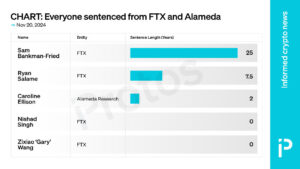A public ledger that is open to anyone, without being controlled by a single owner.
Permissioned ledgers are private ledger systems that are managed by a single company or entity, where transactions are recorded, verified and stored with the permission of the controlling entity. This type of ledger is typically used in industries such as banking, healthcare and government, and access to the ledger is restricted to those that are authorized by the controlling entity.
The main difference between permissioned and unpermissioned ledgers is the level of control and the degree of trust that is required for each type of ledger. Permissioned ledgers require permission from the controlling entity in order to access the ledger, and any changes to the ledger must be approved by the controlling entity. Unpermissioned ledgers, on the other hand, are open source and don’t require permission from a centralized authority to access or make transactions. Furthermore, unpermissioned ledgers are more secure and trustless, as they are managed by a distributed network of computers.




